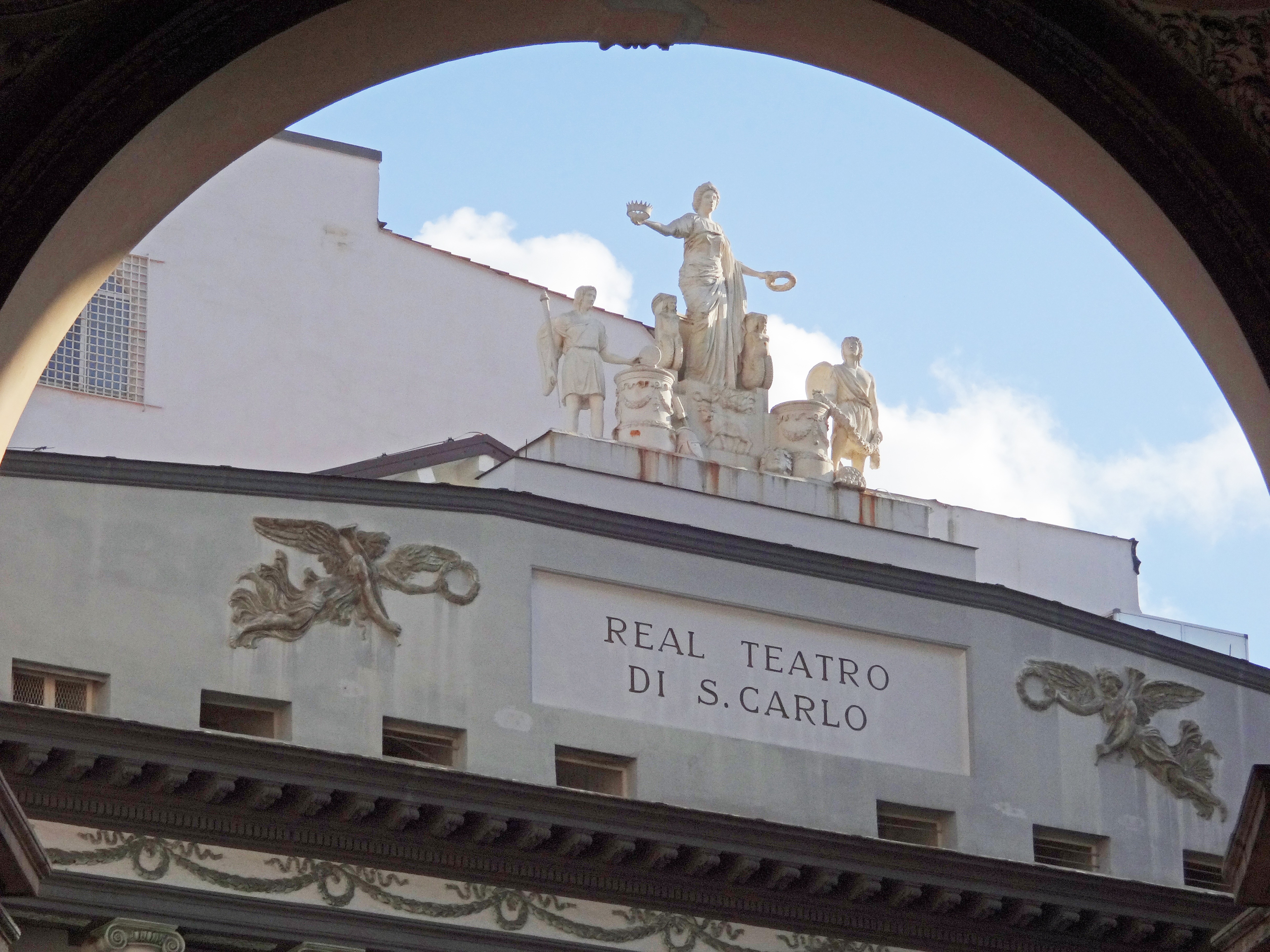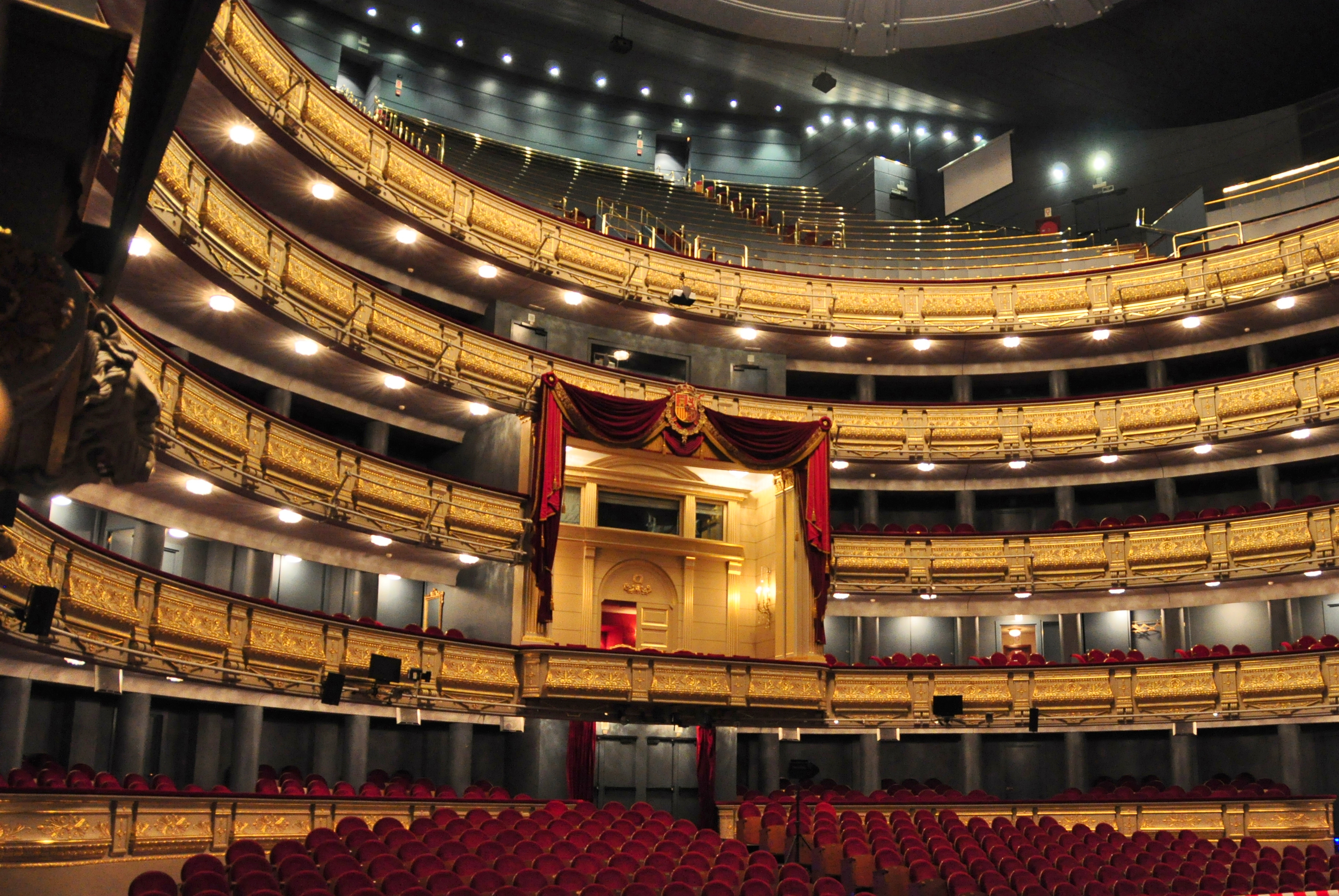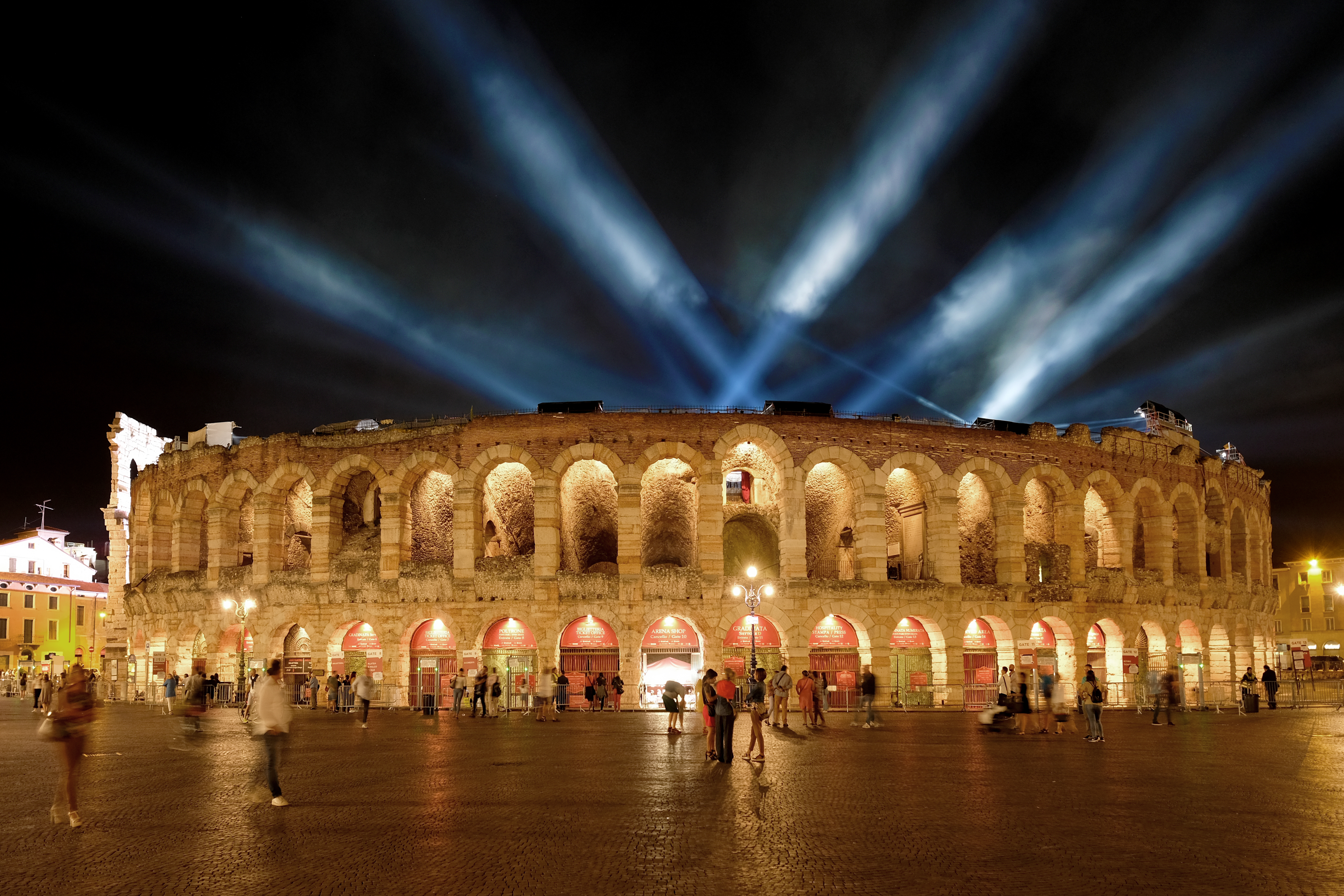|
Deyan Vatchkov
Deyan Vatchkov ( bg, Деян Вачков; born April 8, 1979) is a Bulgarian Bass (vocal range), bass opera singer. Vatchkov was born on April 8th, 1979 in Sofia, Bulgaria. A Sofia native, he studied vocal technique in the Conservatory of Sofia with professor Karapetrov and later in the Academy of La Scala with Leyla Gencer and Luciana Serra. He won international competitions including the Iris Adami Corradetti's First Prize, the special Arrigo Boito Prize in Padua, and Belvedere's Verdi Prize and Special Chamber Opera Prize. As a result, he made his debut in the role of Don Basilio in Il Barbiere di Siviglia in Wien. He has performed in Teatro alla Scala, Arena di Verona, La Fenice di Venezia, Giuseppe Verdi di Trieste, Teatro Comunale di Bologna, Teatro di San Carlo, Teatro Regio (Turin), Teatro Regio di Torino, Teatro Carlo Felice in Genoa, Sferisterio Festival di Macerata, Festival Puccini in Torre del Lago, Teatro Real in Madrid, Palau de les Arts di Valencia, ABAO di Bilb ... [...More Info...] [...Related Items...] OR: [Wikipedia] [Google] [Baidu] |
Sofia
Sofia ( ; bg, София, Sofiya, ) is the capital and largest city of Bulgaria. It is situated in the Sofia Valley at the foot of the Vitosha mountain in the western parts of the country. The city is built west of the Iskar river, and has many mineral springs, such as the Sofia Central Mineral Baths. It has a humid continental climate. Being in the centre of the Balkans, it is midway between the Black Sea and the Adriatic Sea, and closest to the Aegean Sea. Known as Serdica in Antiquity and Sredets in the Middle Ages, Sofia has been an area of human habitation since at least 7000 BC. The recorded history of the city begins with the attestation of the conquest of Serdica by the Roman Republic in 29 BC from the Celtic tribe Serdi. During the decline of the Roman Empire, the city was raided by Huns, Visigoths, Avars and Slavs. In 809, Serdica was incorporated into the Bulgarian Empire by Khan Krum and became known as Sredets. In 1018, the Byzantines ended Bulgarian rule ... [...More Info...] [...Related Items...] OR: [Wikipedia] [Google] [Baidu] |
Teatro Di San Carlo
The Real Teatro di San Carlo ("Royal Theatre of Saint Charles"), as originally named by the Bourbon monarchy but today known simply as the Teatro (di) San Carlo, is an opera house in Naples, Italy, connected to the Royal Palace and adjacent to the Piazza del Plebiscito. It is the oldest continuously active venue for opera in the world, having opened in 1737, decades before either Milan's La Scala or Venice's La Fenice."The Theatre and its history" on the Teatro di San Carlo's official website. (In English). Retrieved 23 December 2013 The opera season runs from late November to July, with the ballet season taking place from December to early June. The house once had a seating capacity of 3,285, but has now been reduced to 1,386 seats. Given its size, structure and antiquity, it was the model for theatres that were l ... [...More Info...] [...Related Items...] OR: [Wikipedia] [Google] [Baidu] |
Musicians From Sofia
A musician is a person who composes, conducts, or performs music. According to the United States Employment Service, "musician" is a general term used to designate one who follows music as a profession. Musicians include songwriters who write both music and lyrics for songs, conductors who direct a musical performance, or performers who perform for an audience. A music performer is generally either a singer who provides vocals or an instrumentalist who plays a musical instrument. Musicians may perform on their own or as part of a group, band or orchestra. Musicians specialize in a musical style, and some musicians play in a variety of different styles depending on cultures and background. A musician who records and releases music can be known as a recording artist. Types Composer A composer is a musician who creates musical compositions. The title is principally used for those who write classical music or film music. Those who write the music for popular songs may ... [...More Info...] [...Related Items...] OR: [Wikipedia] [Google] [Baidu] |
Living People
Related categories * :Year of birth missing (living people) / :Year of birth unknown * :Date of birth missing (living people) / :Date of birth unknown * :Place of birth missing (living people) / :Place of birth unknown * :Year of death missing / :Year of death unknown * :Date of death missing / :Date of death unknown * :Place of death missing / :Place of death unknown * :Missing middle or first names See also * :Dead people * :Template:L, which generates this category or death years, and birth year and sort keys. : {{DEFAULTSORT:Living people 21st-century people People by status ... [...More Info...] [...Related Items...] OR: [Wikipedia] [Google] [Baidu] |
1979 Births
Events January * January 1 ** United Nations Secretary-General Kurt Waldheim heralds the start of the ''International Year of the Child''. Many musicians donate to the ''Music for UNICEF Concert'' fund, among them ABBA, who write the song ''Chiquitita'' to commemorate the event. ** The United States and the People's Republic of China establish full Sino-American relations, diplomatic relations. ** Following a deal agreed during 1978, France, French carmaker Peugeot completes a takeover of American manufacturer Chrysler's Chrysler Europe, European operations, which are based in United Kingdom, Britain's former Rootes Group factories, as well as the former Simca factories in France. * January 7 – Cambodian–Vietnamese War: The People's Army of Vietnam and Vietnamese-backed Kampuchean United Front for National Salvation, Cambodian insurgents announce the fall of Phnom Penh, Cambodia, and the collapse of the Pol Pot regime. Pol Pot and the Khmer Rouge retreat west to an area ... [...More Info...] [...Related Items...] OR: [Wikipedia] [Google] [Baidu] |
Teatro Real
The Teatro Real (Royal Theatre) is an opera house in Madrid, Spain. Located at the Plaza de Oriente, opposite the Royal Palace of Madrid, Royal Palace, and known colloquially as ''El Real'', it is considered the top institution of the performing and musical arts in the country and one of the most prestigious opera houses in Europe. The groundbreaking of the Teatro Real was on 23 April 1818, under the reign of Ferdinand VII of Spain, King Ferdinand VII, and it was formally opened by his daughter Isabella II of Spain, Queen Isabella II on 19 November 1850. It closed in 1925 due to damage to the building and reopened on 13 October 1966 as a symphonic music venue. Beginning in 1991, it underwent major refurbishment and renovation works and finally reopened as an opera house on 11 October 1997 with a floor area of and a maximum capacity of 1,958 seats. Since 1995, the theatre is managed by a public foundation in whose Board of Trustees are represented the Ministry of Culture (Spain), ... [...More Info...] [...Related Items...] OR: [Wikipedia] [Google] [Baidu] |
Festival Puccini
The ''Festival Puccini'' (Puccini Festival) is an annual summer opera festival held in July and August to present the operas of the famous Italian composer Giacomo Puccini. The Festival is located in Torre del Lago, Italy, a town located between Lago di Massaciuccoli and the Tyrrhenian Sea, from the beaches of Viareggio on the Tuscan Riviera and from Pisa and Lucca, Puccini's birthplace. In presenting four or five performances of up to four operatic productions each season, the Festival attracts about forty thousand spectators to its open-air theatre, the ''Teatro dei Quattromila'' (so named for its seating capacity, although 3,200 seats were actually installed), located very close to the "Villa Puccini," the house which the composer had built in 1900 and in which he lived and worked on his major operas until pollution from the lake forced him to settle in Viareggio in 1921. Along with other members of his family who died later, Puccini is buried in a small chapel inside the Vill ... [...More Info...] [...Related Items...] OR: [Wikipedia] [Google] [Baidu] |
Teatro Carlo Felice
The Teatro Carlo Felice is the principal opera house of Genoa, Italy, used for performances of opera, ballet, orchestral music, and recitals. It is located on the side of Piazza De Ferrari. The hall is named for King Carlo Felice, and dates from 24 December 1824, when the Most Excellent Department of Theatres was established. On 31 January 1825, local architect Carlo Barabino submitted his design for the opera house which was to be built on the site of the church of San Domenico. The Dominican friars were moved elsewhere without delay or ceremony, and the first stone of the new building was laid on 19 March 1826. The inaugural performance of Bellini's ''Bianca e Fernando'' took place on 7 April 1828, even though the structure and decoration were not quite finished. The auditorium accommodated an audience of about 2,500 in five tiers (each with 33 boxes), a gallery above, and standing room in the orchestra pit. The acoustics were considered among the best of the time. For ne ... [...More Info...] [...Related Items...] OR: [Wikipedia] [Google] [Baidu] |
Teatro Regio (Turin)
The Teatro Regio (Royal Theatre) is a prominent opera house and opera company in Turin, Piedmont, Italy. Its season runs from October to June with the presentation of eight or nine operas given from five to twelve performances of each. Several buildings provided venues for operatic productions in Turin from the mid-16th century, but it was not until 1713 that a proper opera house was considered, and under the architect Filippo Juvarra planning began. However, the cornerstone was not laid until the reign of Charles Emmanuel III in 1738 after Juvarra's death. The work was supervised by Benedetto Alfieri until the theatre was completed and decorated by Bernardino Galliari. Teatro Regio, 1740 to 1936 The Teatro Regio (Royal Theatre) was inaugurated on 26 December 1740 with Francesco Feo's ''Arsace''. It was a sumptuously built facility, seating 1,500 and with 139 boxes located on five tiers plus a gallery. However, the theatre was closed on royal order in 1792 and it became a wareho ... [...More Info...] [...Related Items...] OR: [Wikipedia] [Google] [Baidu] |
Teatro Comunale Di Bologna
The Teatro Comunale di Bologna is an opera house in Bologna, Italy. Typically, it presents eight operas with six performances during its November to April season. While there had been various theatres presenting opera in Bologna since the early 17th century, they had either fallen into disuse or burnt down. However, from the early 18th century, the ''Teatro Marsigli-Rossi'' had been presenting operatic works by popular composers of the day including Vivaldi, Gluck, and Niccolò Piccinni. The ''Teatro Malvezzi'', built in 1651, burned down in February 1745 and this event prompted the construction of a new public theatre, the ''Nuovo Teatro Pubblico'', as the Teatro Comunale was first called when it opened on 14 May 1763. Design and inauguration Despite opposition from other competitors, the architect Antonio Galli Bibiena won the theatre design contract. The theatre's inaugural performance was Gluck's ''Il trionfo di Clelia'', an opera which Gluck had composed for the occasion. ... [...More Info...] [...Related Items...] OR: [Wikipedia] [Google] [Baidu] |
Bulgaria
Bulgaria (; bg, България, Bǎlgariya), officially the Republic of Bulgaria,, ) is a country in Southeast Europe. It is situated on the eastern flank of the Balkans, and is bordered by Romania to the north, Serbia and North Macedonia to the west, Greece and Turkey to the south, and the Black Sea to the east. Bulgaria covers a territory of , and is the sixteenth-largest country in Europe. Sofia is the nation's capital and largest city; other major cities are Plovdiv, Varna and Burgas. One of the earliest societies in the lands of modern-day Bulgaria was the Neolithic Karanovo culture, which dates back to 6,500 BC. In the 6th to 3rd century BC the region was a battleground for ancient Thracians, Persians, Celts and Macedonians; stability came when the Roman Empire conquered the region in AD 45. After the Roman state splintered, tribal invasions in the region resumed. Around the 6th century, these territories were settled by the early Slavs. The Bulgars, led by Asp ... [...More Info...] [...Related Items...] OR: [Wikipedia] [Google] [Baidu] |
Arena Di Verona
The Verona Arena ( it, Arena di Verona ) is a Roman amphitheatre in Piazza Bra in Verona, Italy built in 30 AD. It is still in use today and is internationally famous for the large-scale opera performances given there. It is one of the best preserved ancient structures of its kind. In ancient times, the arena's capacity was nearly 30,000 people. The stage for concerts and opera performances decreases the available places to a maximum of 22,000. It will be used as the Closing ceremony venue for the 2026 Winter Olympics and two weeks later will be used for the Opening Ceremony for the 2026 Winter Paralympics in Milan and Cortina d'Ampezzo. Amphitheatre The building itself was built in AD 30 on a site which was then beyond the city walls. The ''ludi'' (shows and games) staged there were so famous that spectators came from many other places, often far away, to witness them. The amphitheatre could host more than 30,000 spectators in ancient times. The round facade of the buil ... [...More Info...] [...Related Items...] OR: [Wikipedia] [Google] [Baidu] |



_(cropped_v2).jpg)

.jpg)

_3.jpg)
